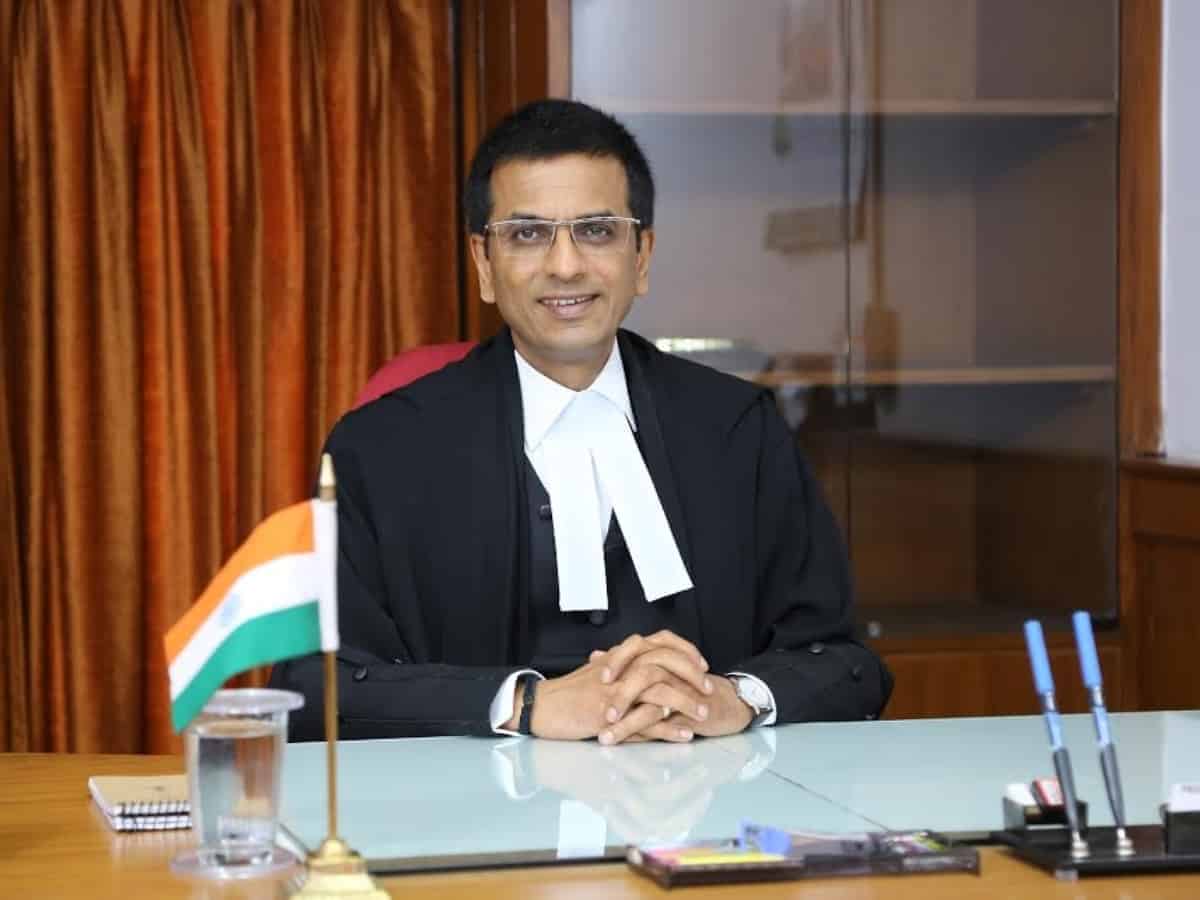
New Delhi: Chief Justice of India D Y Chandrachud has defended his minority verdict on some aspects pertaining to same-sex marriages and said he stood by it as the judicial opinions are sometimes a “vote of conscience and a vote of the Constitution”.
On October 17, a five-judge Constitution bench headed by the CJI unanimously refused to accord legal recognition to same-sex marriage, saying there was “no unqualified right” to marriage.
However, the CJI and Justice S K Kaul were in minority on the issues of right to form civil union and right of adoption of queer couples.
Speaking candidly at the 3rd Comparative Constitutional Law discussion co-hosted by the Georgetown University Law Center, Washington and the Society for Democratic Rights (SDR), New Delhi about him being in minority in the same-sex marriage judgements, the CJI said, “I do believe it (judgement) is sometimes a vote of conscience and a vote of the Constitution and I stand by what I said.”
He said the CJIs have been in minority on rare occasions.
“But there are 13 significant cases in our history where the Chief Justice has been in a minority. And, I do believe, sometimes it is a vote of conscience and a vote of the Constitution and I stand by what I said,” he said.
“Therefore, we said that, well, it’s time for Parliament to act. Apart from that, that’s where I got into a minority. I said, though we cannot therefore entrench into the domain of Parliament. Nonetheless, there were sufficient foundation principles in our Constitution, to allow for recognition of same sex unions in terms of civil unions,” he elaborated.
“Three of my colleagues, another colleague joined me in this, but three of my colleagues felt that to recognise a right of forming unions was again beyond the judicial domain, and that it must be left to Parliament,” the CJI said.
On the fundamental issue as to whether same sex couples should have the right to form binding unions and cohabit traditional relationships, three of my colleagues, though they recognised that they do have the right, he said, “we cannot elevate this to a constitutional right.”
“The other area in which I was in a minority was whether same sex couples have the right to adopt… I said that well, same sex couples, queer couples have the right to adopt a child because under Indian law, a single individual can adopt a child, a woman can adopt a child. So, I said if they are together, there is no reason to deny them the right to adopt the child merely because they are in a queer relationship,” he said.
“So on the broader aspect, there was a unanimity, but on the right to form unions and adoptions, I was in a minority of two as against three of my colleagues,” the CJI said.
